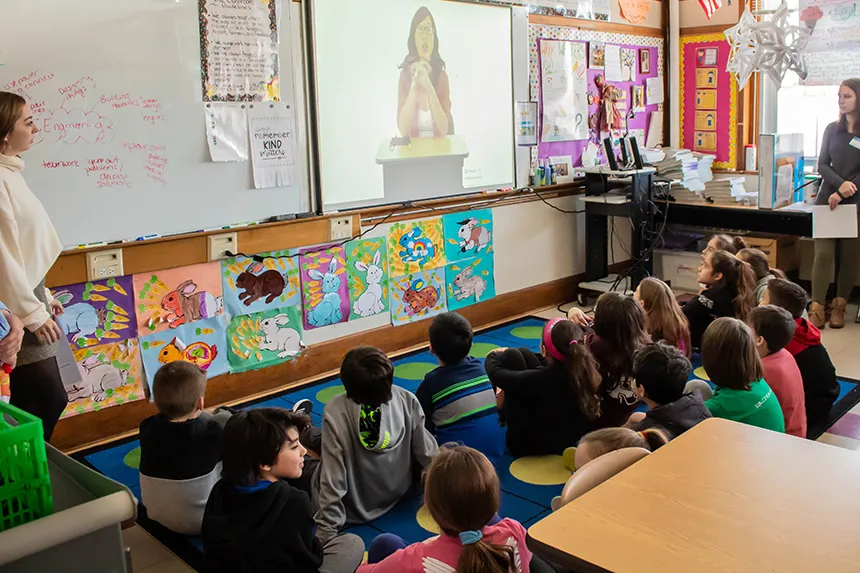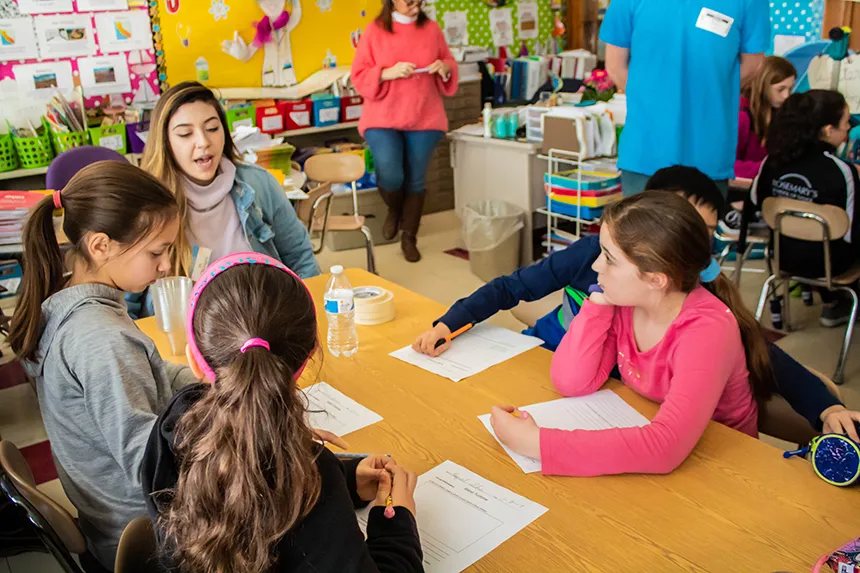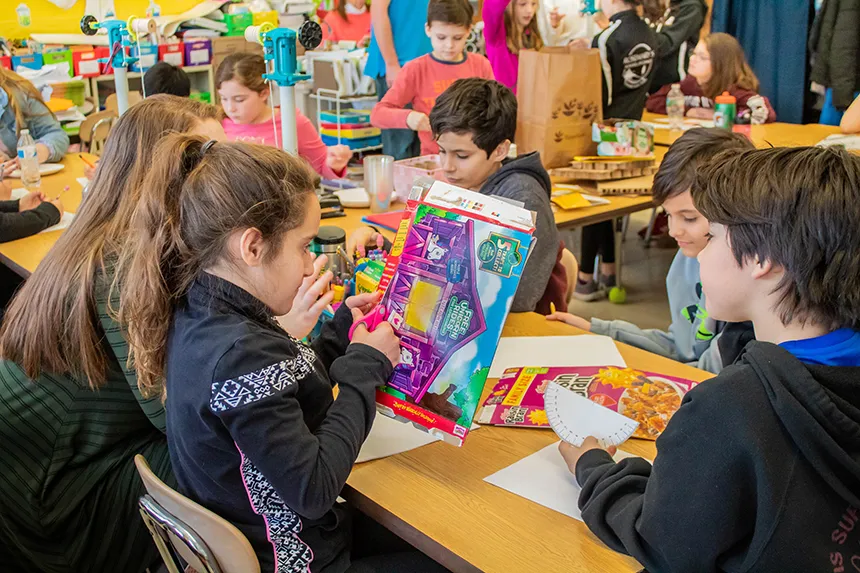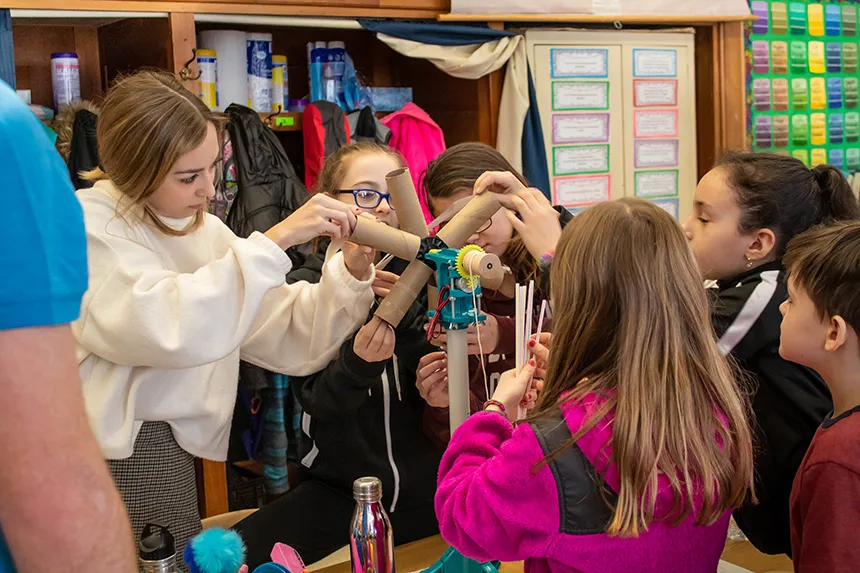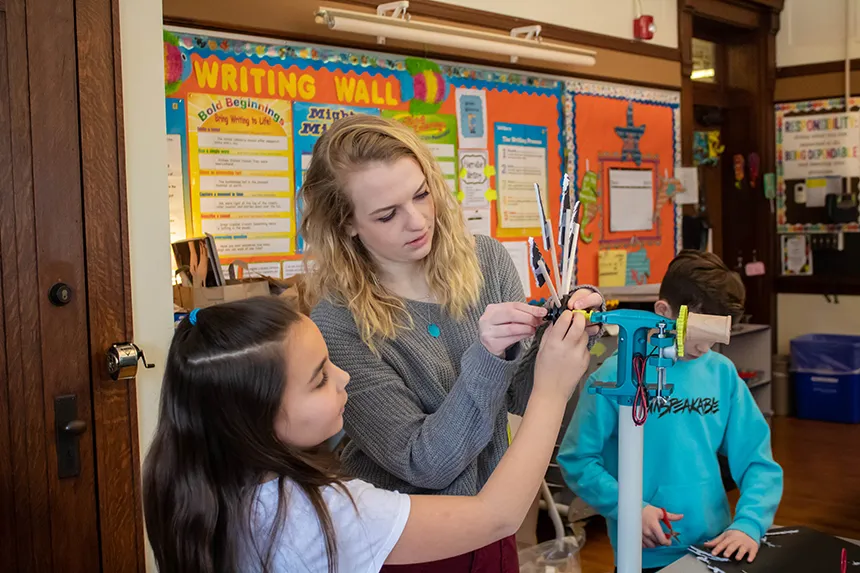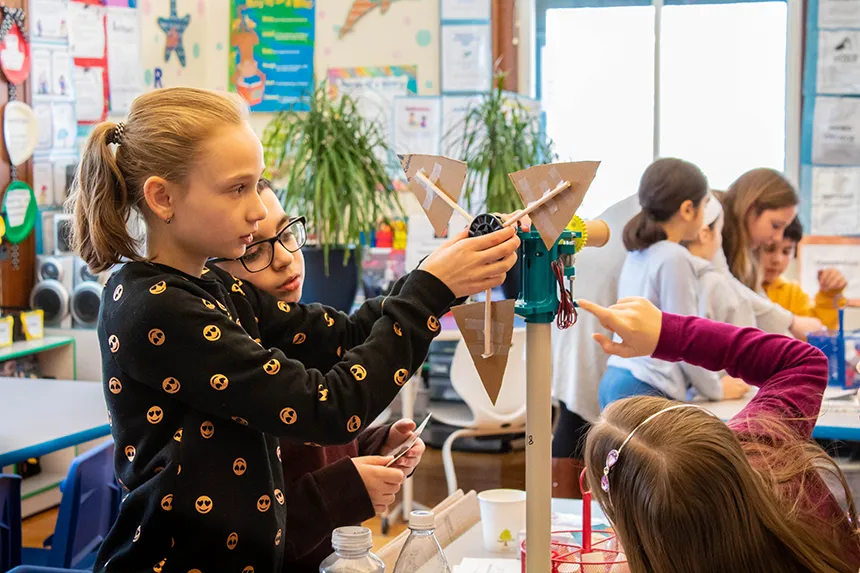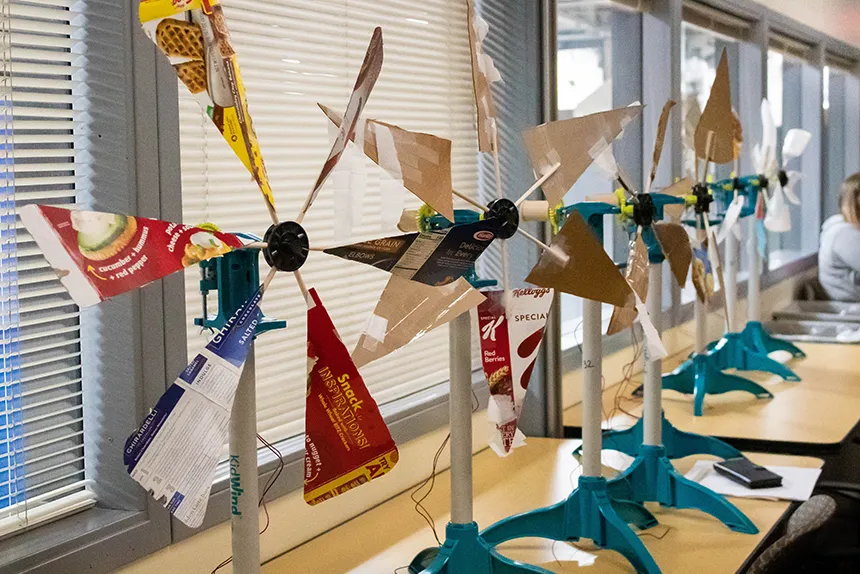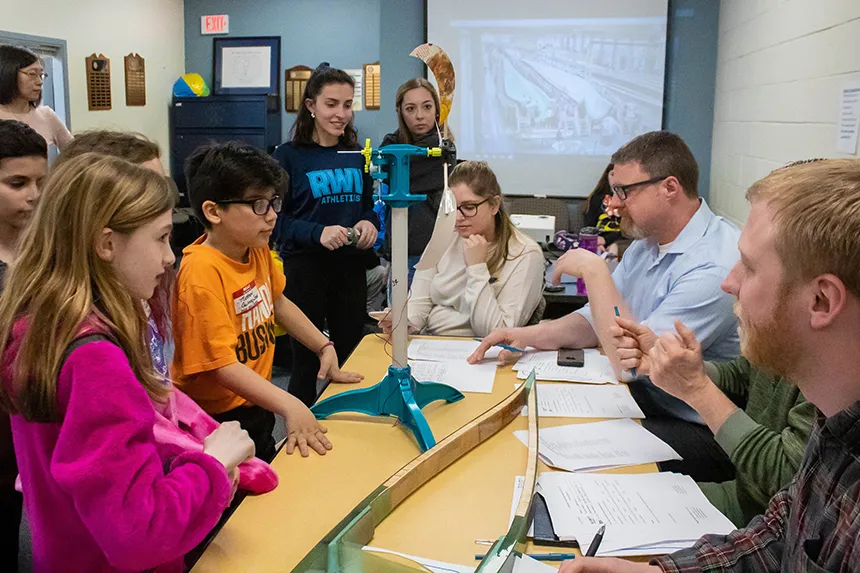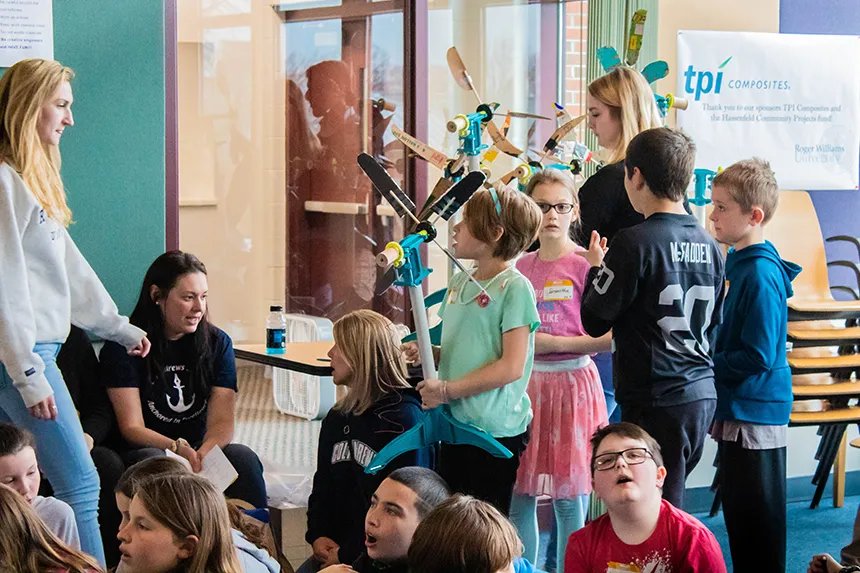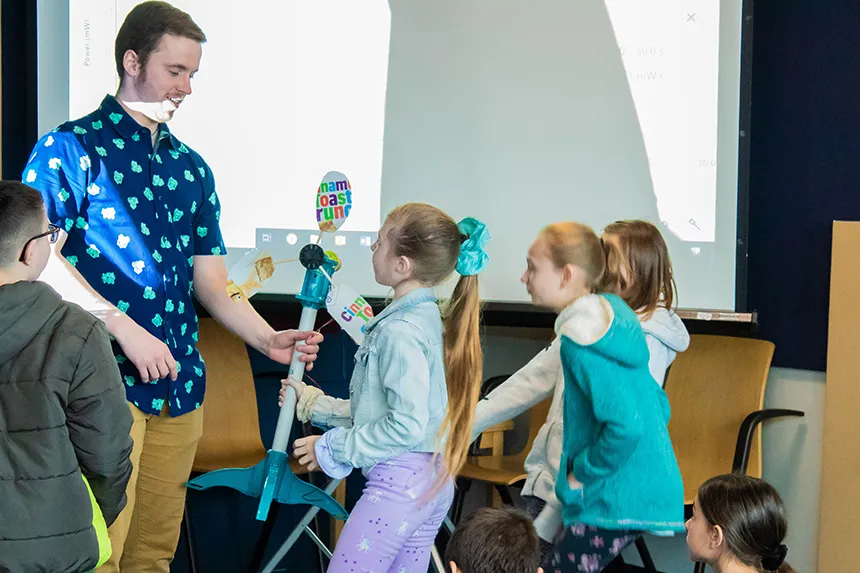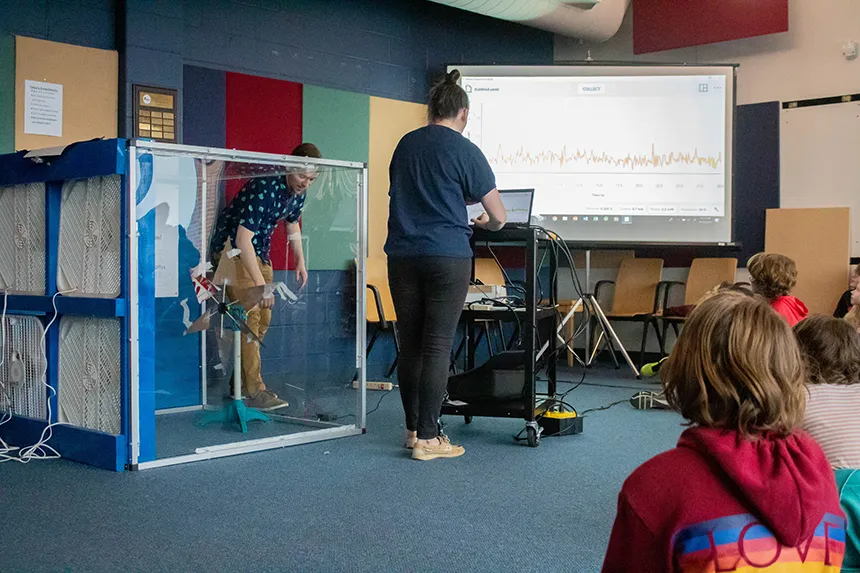How to Build a Wind Turbine: Introducing Fourth Graders to Engineering in KidWind Project
An interdisciplinary project brings RWU education and engineering majors together to teach fourth graders about engineering design and wind turbine energy
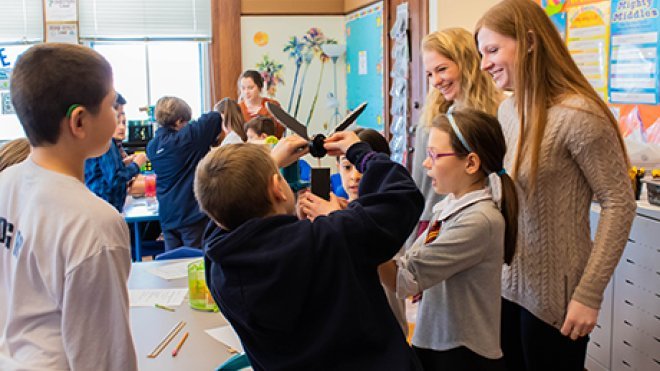
BRISTOL, R.I. – With colored construction paper, Styrofoam cups, coffee filters, cereal boxes, empty toilet paper rolls, and straws splayed across the desks, Mrs. McCanna’s fourth grade classroom filled with excited chatter as her students constructed small-scale wind turbines from recycled materials with the help and guidance from some of RWU’s engineering and education majors.
A partnership between Roger Williams University and the Bristol Warren School District, the KidWind project features RWU students bringing together two academic disciplines to introduce 232 fourth graders to wind-turbine energy and the engineering design process. The project is made possible through the RWU Campaign for Civic Scholars and local sponsorship of TPI Composites of Warren, R.I.
In addition to teaching the next generation of college students, the RWU students are gaining valuable skills and real-world experiences they can carry with them through their future careers.
“This project is about more than just supporting the need for engineering education in local classrooms,” said Assistant Professor of Engineering Maija Benitz. “It deepens our RWU students learning through experiential, hands-on community engagement.”
With the adoption of the Next Generation Science Standards (NGSS) in Rhode Island in 2016, the local district has had a pressing need to provide elementary schools with support in integrating science and engineering in their classrooms. Working through RWU’s Community Partnerships Center and with the help of Benitz and Associate Professor of Science Education Li-Ling Yang, the KidWind project emerged.
This interdisciplinary project combines students from EDU 342: Teaching Inquiry Science in Elementary School and ENGR 340: Sustainable Energy Systems to teach an engineering design and wind energy curriculum to elementary students. The fourth graders engage in science and engineering through worksheets, videos and hands-on lessons that have them designing, building and testing small-scale wind turbines.
KidWind Project
In teams blending both education and engineering majors, RWU students are leading five hour-long lessons in 11 fourth-grade classrooms, focusing on the different types of alternative energy and the overall engineering design process for wind turbines. For each lesson, the RWU students must work together to incorporate engineering and educational focuses to build a balanced lesson plan covering engineering concepts that is also grade-specific and NGSS-aligned.
But this educational experience isn’t just for the elementary students. The KidWind project is also giving the RWU students valuable experience in their fields of study.
Yang’s education students are developing an in-depth understanding of wind energy and engineering, while gaining the first-hand experience in planning and implementing an integrated and effective science and engineering lesson that follows NGSS standards.
“Projects like this get you ready for the real-world in teaching,” said junior education major Matt Turo. “We’re in charge of making the lessons by ourselves and delivering the information in order for the students to learn about the specific concepts while achieving certain standards. It’s like a transition into teaching your own classroom.”
Meanwhile, Benitz’s engineering students are not only strengthening their own understanding of wind energy, but they are also learning how to communicate science in a more effective manner.
“You’ll always have to collaborate with people who aren’t engineers, so it’s good to know how to talk to them about these concepts on a simpler level,” said Isabel Clark, a senior mechanical engineering major. “And it was definitely a challenge at first. But in the end, we’re all able to have this really cool experience that we would not have been able to do on our own. The education students wouldn’t have known the engineering concepts and we wouldn’t know how to teach them in an effective way.”
In celebration of this partnership, join the RWU students and Bristol Warren fourth graders as they showcase their hard work and test their final wind turbine designs on Friday, April 12, at 9:45 a.m. in Roger Williams University’s Field House.
